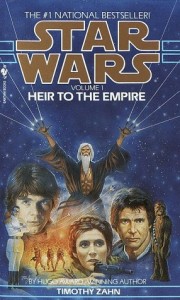Originally posted to Goodreads.
It was the wrong war, in the wrong place, at the wrong time, for the wrong reasons, with a secret agenda. Captain Cordelia Naismith of the Betan Expeditionary Force is captured by her enemy, Lord Vorkosigan of Barrayar.
Source: Goodreads
Yesterday I read Lois McMaster Bujold’s Shards of Honor, the first book (in publication order, anyway) of her Vorkosigan Saga, in the space of about five hours. Needless to say, I thoroughly enjoyed it. Though Vorkosigan and Barrayaran society were the real foci, I loved that the story was filtered through Cordelia’s Betan eyes. The one downside, perhaps, is that Cordelia’s own world and people don’t seem comparatively as fully realized as the Barrayarans, since they’re already a given in Cordelia’s mind. But I appreciated that the novel wasn’t a straightforward, predictable compare-and-contrast between the conservative militarism of the Barrayarans and the egalitarian liberalism of the Betans. The characters aren’t so easily defined.
And the romance is exactly the kind of love story I want to read. Both characters are pragmatic, purposeful, duty-conscious adults, aware of their responsibilities and aware their actions have consequences. Their attraction isn’t just physical or even coldly intellectual but rather based on the fact they both are seeking something beyond themselves and see it in each other, however imperfectly. (“I believe he calls it honor. I guess I’d call it the grace of God.”)
I’m very much looking forward to discovering the rest of this series.
Content advisory (light spoilers): There’s some pretty frank discussion of war rapes (and some thought-provoking, poignant passages dealing with the consequences thereof). Cordelia is nearly raped in one particularly disturbing scene.
 moved Star Wars out of the realm of space fantasy and into the realm of true science fiction, setting the genre boundaries for the later Expanded-Universe novels. While I agree that Zahn’s work had a profound influence not only on the EU but on the franchise in general, I don’t think the author succeeds in making his case—Zahn’s work didn’t make Star Wars any more science-fictional than it already was.
moved Star Wars out of the realm of space fantasy and into the realm of true science fiction, setting the genre boundaries for the later Expanded-Universe novels. While I agree that Zahn’s work had a profound influence not only on the EU but on the franchise in general, I don’t think the author succeeds in making his case—Zahn’s work didn’t make Star Wars any more science-fictional than it already was.